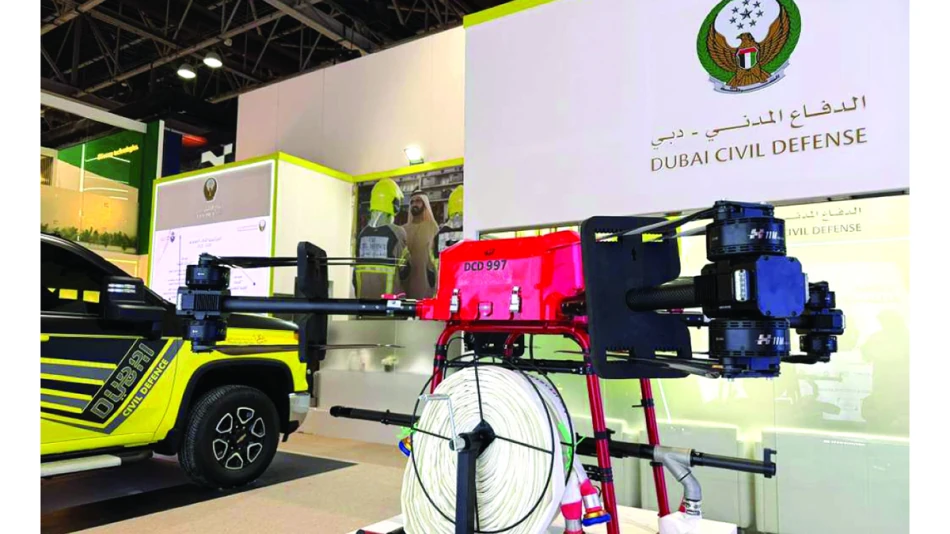
Dubai Homes Secure with 'Hasnatik' Home Security in 3 Years
Dubai's civil defense is rolling out an ambitious plan to equip every home in the emirate with the "Hasantak" fire protection system within three years. The system connects homes directly to civil defense operations rooms and includes insurance coverage for repairs up to 1.5 million dirhams, marking a major shift toward proactive fire prevention in one of the world's most densely built cities.
Major General Rashid Thani Al Matrooshi, Commander-in-Chief of Dubai Civil Defense, announced that 100% of Dubai homes will have the protection system by 2027. This fits into Dubai's broader 2030 strategy, where civil defense handles "proactive immunity" - essentially preventing fires before they become deadly.
The Hasantak system tackles the biggest killer in house fires: smoke inhalation during sleep. The system uses Bluetooth technology to connect smoke and heat detectors throughout a home. When one detector picks up danger, loud alarms sound in every room to wake everyone up. It's a simple but effective way to save lives.
But here's where it gets interesting from a financial perspective. Dubai partnered with three insurance companies to offer coverage for just 200 dirhams per year. That's roughly $54 annually for repairs up to $408,000, plus two weeks of alternative housing if needed. For a city where property values run high, this represents significant economic protection for homeowners.
The rollout strategy covers three categories. New homes must install the system before getting completion certificates. Rental properties can't be leased without the system, thanks to coordination with the Land Department. For older buildings, civil defense is running marketing campaigns to encourage voluntary installation.
So far, about 11,000 homes have the system installed. The government covered costs for low-income families in the first phase. Current compliance with fire safety requirements across all buildings sits at 78%, with civil defense working to push that number higher.
Al Matrooshi admitted the program faced early challenges. The procedures seemed complex to residents, and many didn't understand why their homes needed direct connection to emergency services. Some balked at the costs. But standardizing prices and allowing multiple companies to install the equipment helped overcome resistance.
Dubai's approach reflects broader trends in smart city development, where governments use technology to prevent problems rather than just respond to them. The civil defense conducts daily surveys of buildings and areas to identify risks before they become emergencies. This proactive scanning helps teams respond faster when incidents do occur.
The strategy appears to be working. Response times to fire incidents now rank among the world's fastest, while actual firefighting time has dropped by 50%. Dubai civil defense recently set a Guinness World Record when a team climbed the 159 floors of Burj Khalifa in full firefighting gear in just 52 minutes and 30 seconds.
Technology upgrades include robots for complex warehouse fires and environmentally friendly foam that controls flames more quickly. The civil defense also launched the "Shaheen 2" drone system at GITEX Global 2025, which proved effective during a recent high-rise fire in Al Barsha area.
For property investors and residents, the mandatory installation represents both an upfront cost and long-term protection. The insurance component essentially creates a safety net that could prevent financial ruin from fire damage. And for Dubai's reputation as a safe place to live and invest, universal fire protection adds another layer of security that could influence property values and insurance rates across the emirate.
Most Viewed News

 Sara Khaled
Sara Khaled






